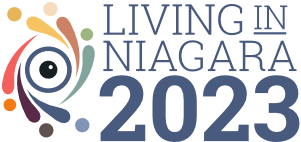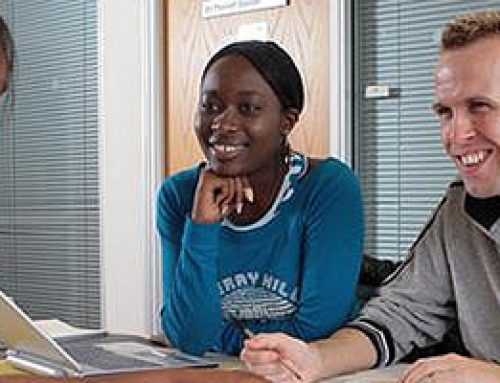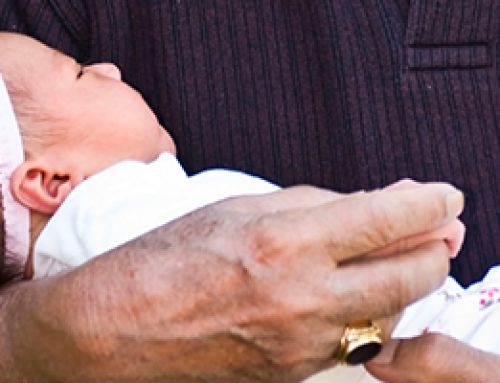Each new child, graduate, and immigrant in Niagara is an important part of our community. Our ability to help with support and resources for these individuals to get started on a stable course will have a significant impact on the future vitality of our region.
The presence of child care and supports for new parents; the availability of jobs for new graduates; and programming to welcome and help new immigrants and international students to settle in Canada are all ways our community supports these people who are ‘getting started’.
Things We Are Doing Well
- Ontario Early Years Centres, Family Resource Centres, Family Resource Programs and Parent and Family Literacy Centres provide free programs and services where families can drop in for children to play and learn with their parents / caregivers; to interact with other children; and experience activities to stimulate children’s brain development.
- Niagara Region Children’s Services manages Niagara’s child care system for children from birth to 12 years of age, and is responsible for child care supports and services for 160 licensed child care centres. Niagara currently has no waitlist for subsidized child care.
- www.parentdirectniagara.ca is an online directory for information and links to programs, services, and resources for children and families in Niagara. It is operated by the Early Childhood Community Development Centre (ECCDC) with support from the Niagara Children’s Planning Council (NCPC).
- The Ontario Youth Employment Fund is being leveraged to assist Niagara youth 15 to 29 years of age who are unemployed and not participating in full time education or training to access assisted services, including supported job search, job matching and placement, and job retention services.
- The InCommunities database lists 18 service providers in Niagara working in Settlement Services, including newcomers’ centres; immigrant services and citizenship supports; multi-cultural organizations; community legal supports; and healthcare services.
Emerging Activities
- The 2014 Parent Knowledge Study conducted by the Niagara Children’s Planning Council (NCPC) gauged what Niagara parents of children aged 0-6 years know about child growth and development. Parents seemed to know a lot about very young children (between 0 to 6 months) but as their child aged their knowledge of their child’s growth and development diminished.
- Since 2012, with the provincial shift to a more integrated service system for families and children, the Best Start Child and Family Centre Service System SubCommittee of the NCPC has developed two pilot family centres. These are accessible community-based primary points of service in identified communities where families and caregivers can access programs, services and resources that are flexible and adaptable to meet the community’s needs. Findings from this pilot are providing rich information to inform implementation of family centres across Niagara.
- Adolescent’s Family Support Services of Niagara has partnered with Niagara Region Public Health to offer a new program to young fathers. It is a unique peer-led drop-in model that allows new fathers in Niagara to talk about challenges they are facing as a parent while learning about ways to support their child’s growth and development.
- In 2013, the economic, demographic and social shifts altering the landscape for Canadian youth were reviewed to identify Niagara-focused priorities, including: Provide information for youth; Engage youth on their own terms; and Leverage the role of mentorships. Leadership Niagara,Next Niagara, municipal Mayors’ youth advisory committees, Gennext and the Niagara Entrepreneur of the Year ‘Spirit of Enterprise’ award for students are initiatives engaging young people in building a strong future by living, working, giving, and staying in Niagara.
- Increasing numbers of international students are studying in our community. A total of almost 5,000 students who attend college and university here comprise a significant proportion of Niagara’s post-secondary student population.
- In 2013, 28 immigrant and francophone women in Niagara participated in the inaugural year of the eight-week Women’s Entrepreneurship Development program. Offered through the Welland Heritage Council and Multicultural Centre with funding from the Ontario Women’s Directorate, the program prepares participants to start their own business.
Suggested Action Steps
- Advance the focus on parental engagement in the Niagara context, so that parents and families feel respected, connected and supported in a community that honours their diversity.
- Continue to advocate for adequate child care funding to ensure the Niagara-wide community is not impacted by a necessity for waitlists for subsidized child care.
- Increase efforts to attract immigrants to settle in Niagara, to enrich the cultural mix in our communities, help offset Niagara’s low population growth rates and strengthen Niagara’s inherent links with international markets. Gain a better understanding of Secondary Immigration trends of newcomers with jobs based in Toronto, who find GTA cost of living prohibitive and may choose to live in Niagara and commute.
- Develop a broadened understanding of the effects on, and opportunities for Niagara arising from the increasing numbers of international students of all ages studying in our region.
Indicators
Starting out as a child in Niagara
Starting out as a youth and graduate in Niagara
Starting out as an immigrant, refugee or international student in Niagara






